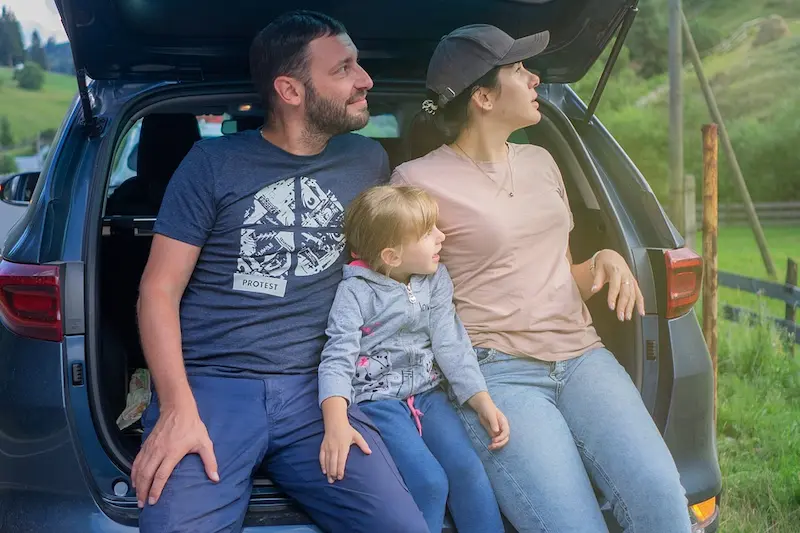Traveling with kids can be a great experience but it comes with its own set of challenges. Renting a car while on this journey is one of them. There are several factors you should consider when selecting the right car to make your trip safe and enjoyable for everyone involved. From selecting the right size vehicle, to making sure you have all the necessary child safety equipment, understanding what to look for in a rental car can help make your family’s trip stress-free and memorable.
Table of Contents
1. Car Seats
Comfort and safety should come first when traveling with children. Many rental car companies may offer child safety seats, though you should always confirm this before booking your reservation to avoid surprises at the pickup location. You’ll also want to ensure that the company provides up-to-date safety seat models that meet current safety regulations and can be used for infants, toddlers, or older children.
If the car does not have a child seat, you may need one from a reputable source. Diono has a collection of car seats and booster seats designed with safety in mind. You can rest assured your children will be riding safely while on the road.
2. Insurance Coverage
When renting a car, it is essential to consider whether you need additional insurance coverage. Many rental companies offer different types of insurance, and there are often exclusions. Read the terms of your agreement carefully before signing on the dotted line. Look for rental companies that offer low deductibles so that you will be covered in case of an accident. Ask about special discounts for renters members of AAA or another auto club. The extra coverage may be worth the cost in the long run.
3. Vehicle Size and Type
The type and size of the car you rent can make or break your family road trip. Choose a vehicle that fits everyone comfortably, with enough room for luggage or other items you might need along the way. If you have a large group, consider booking an SUV or minivan that can accommodate seven passengers.
For those with smaller families, a mid-sized sedan or hatchback may be a more suitable option. Consider fuel efficiency when selecting your vehicle; you’ll want to choose something that won’t strain your wallet at the pump. The size and type of vehicle you rent should also be based on the roads you plan to take. If most of your journey will be off-roading, then an SUV would be ideal for tackling bumpy terrain and providing a comfortable ride for passengers. When planning your trip, it’s essential to carefully choose and rent a car that suits both your travel needs and budget.
4. Accessories Needed
Keep a list of any extra accessories you may need for your vehicle. This could include high-back booster seats, GPS navigation systems, Bluetooth headsets, and more. The car should choose to allow for seamless integration with any of these extras if they are available. Consider looking into car rental companies offering extras such as ski and bike racks.
If you are camping, consider renting a car with an outdoor kit or camping equipment. This is especially helpful if you want to avoid bringing your gear. Many companies offer special packages for those who plan camping during their trip.
5. Fees and Discounts
Renting a car is a costly undertaking. Look for discounts and promotional offers on car rentals to ensure you get the best bang for your buck. Discounts may be available for members of certain auto clubs or frequent flyers. Check online for daily or weekly special deals that can help reduce the cost of your rental.
Be sure to ask about any additional fees, such as taxes, surcharges, and airport fees. The rental company may also require that you purchase particular insurance or add additional drivers to your policy. All these will factor into the total cost, so ask about them before signing the agreement.
6. Maintenance Record
Imagine the stress of having a car breakdown on your family road trip. To avoid this, ask about the maintenance history of the rental car and make sure it’s been properly serviced. The company should be able to provide detailed records or even show you pictures of recent services or repairs performed on the vehicle.
Ask for a vehicle with low mileage, so it is still in good condition. You should also look for signs of wear and tear, such as loose parts or components needing replacement. An after-hours assistance policy should also be in place just in case you run into any trouble on the road.
By taking the time to consider all of these factors when renting a car, you can ensure that your family road trip is a safe and enjoyable experience. Remember to ask questions, read the rental agreement carefully, and research different rental companies before making your final decision. This way, you’ll have peace of mind knowing that your journey will be one to remember.

